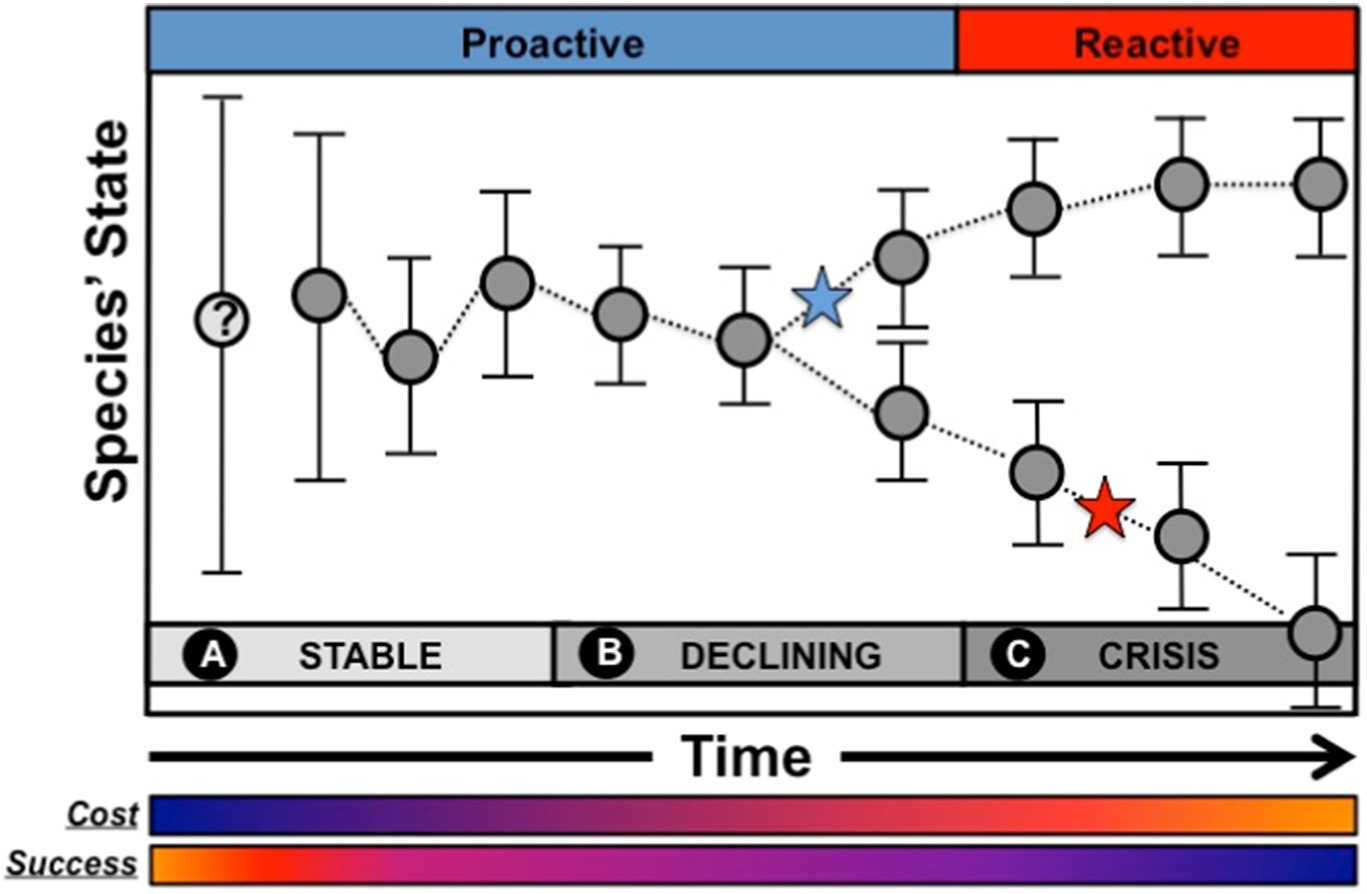Proactive management of amphibians: challenges and opportunities
Abstract/Summary
Delaying species management reduces the chance of successful recovery, increases the risk of extinction, and can be expensive. Acting before major declines are realized affords access to a greater suite of cost-effective management actions to sustain populations, reducing the likelihood of declines warranting protected status. It is clear that reactive management approaches are not sufficient for amphibian conservation and a successful path forward will require proactive approaches. We describe how conservation timelines and structured decision making can help evaluate management options available to species given current, and often limited, knowledge about populations or distributions. We illustrate this framework by highlighting management of common and widespread amphibians, as many species are in decline, including those found in protected conservation areas. We promote the development of explicit management objectives, management triggers and advocate for evaluating the cost-effectiveness of actions before species declines are observed.
Publication details
| Published Date: | 2019-08 |
| Outlet/Publisher: | Biological Conservation |
| Media Format: |
ARMI Organizational Units:
Northeast - BiologyTopics:
ManagementMonitoring and Population Ecology
Keywords:
amphibiansmanagement

